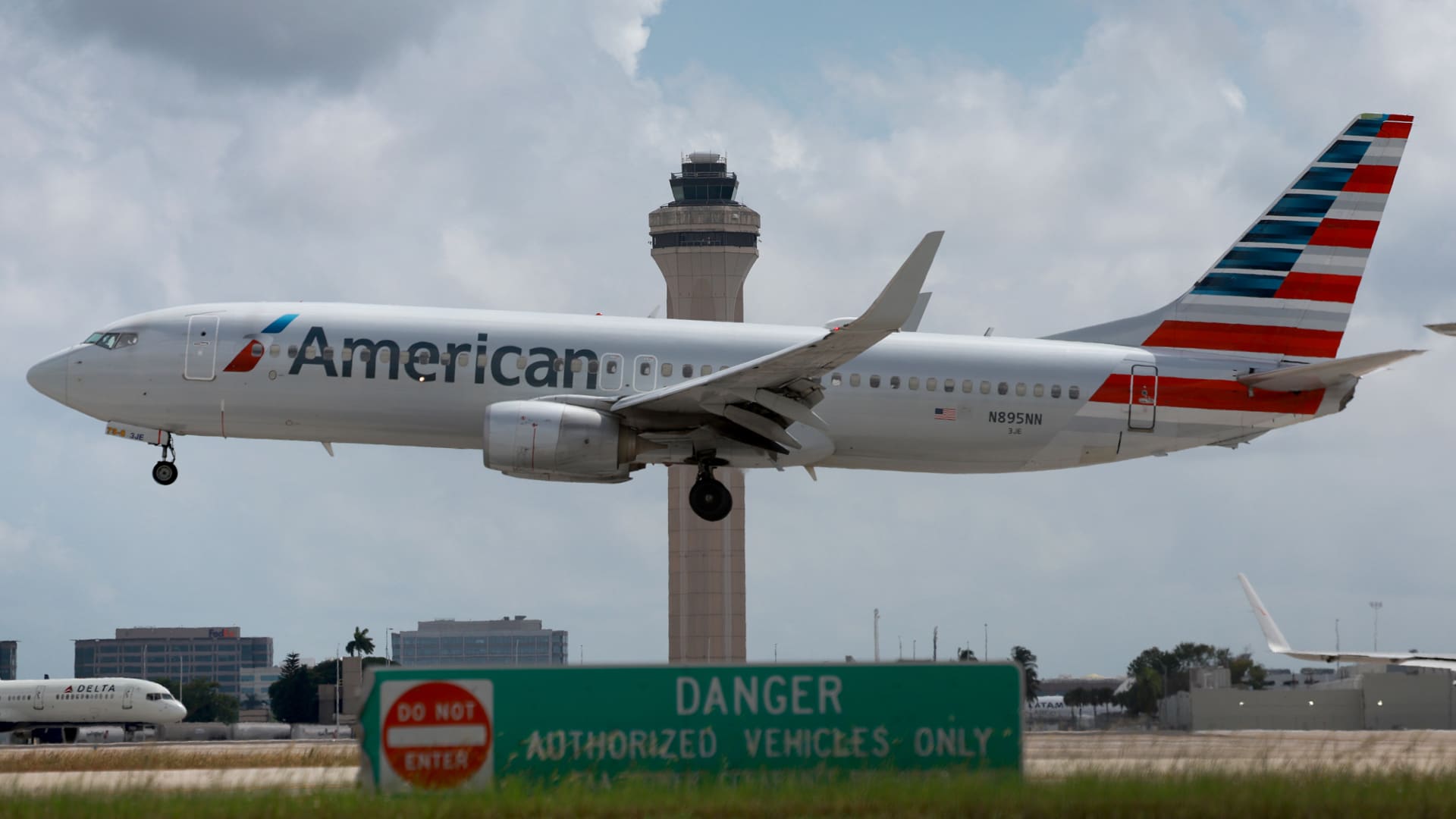American Airlines aims to remove carbon from the atmosphere by working with a startup that stores bricks of plant material underground.
The airline announced a deal with Graphyte on Tuesday to purchase credits equivalent to 10,000 tons of permanent carbon removal with delivery scheduled for early 2025.
American is Graphyte’s first commercial customer.
Graphyte uses a process called carbon casting that converts byproducts from the agriculture and timber industries such as wood bark, rice hulls and plant stalks which have captured carbon dioxide through photosynthesis.
The plant material is dried to prevent decomposition and then converted into carbon dense bricks that are sealed with a polymer barrier. These bricks are stored in underground chambers and monitored with sensors to make sure the carbon does not escape, according to the company.
American aims to achieve net-zero emissions by 2050, but the aviation industry has few viable solutions right now to reduce its impact on the climate. American has invested in hydrogen as an alternative fuel but it won’t be commercially viable for years to come.
“Hard to abate industries like aviation will need high-quality, permanent, affordable and scalable carbon credits – including removals – to achieve our emissions reduction goals,” said Jill Blickstein, American’s chief sustainability officer, in statement Tuesday.
Plant byproducts from the agriculture and timber industries are typically burned or left to decompose, which returns carbon dioxide into the atmosphere. This biomass material is equivalent to 3 billion tons of potential carbon dioxide removal annually, according to Graphyte.
Graphyte says carbon casting is a cheap, scalable alternative to expensive and technologically intensive methods of carbon capture and removal. The company is backed by Breakthrough Energy Ventures, an investment firm founded by Bill Gates that funds clean energy technologies.
